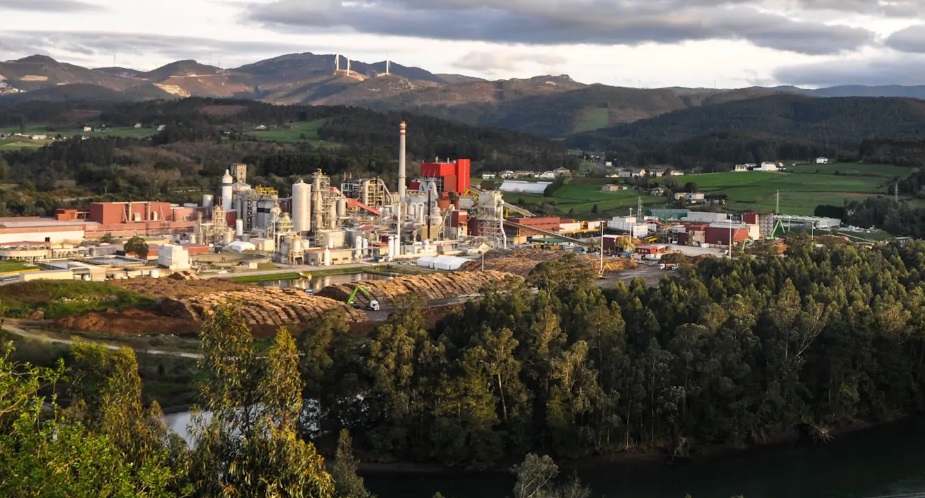This October, Ence's Navia biofactory in Spain has surpassed the energy efficiency record in its biomass boiler. The condensation turbine associated with this installation has set a new historical record, generating 853.7 MWh of renewable energy in one work day, from plant remains, such as branches and bark from sustainably managed forest crops. The Navia biofactory is thus consolidated as a leading facility in energy efficiency.
In its biofactories, Ence uses a natural and renewable product such as wood as raw material and transforms it into a biodegradable and recyclable material, cellulose. In this production process, wood components that cannot be used to obtain cellulose, such as bark (biomass) and lignin, are used as a source of renewable energy, generating not only enough thermal and electrical energy to cover the needs of the plant, but to export to the grid and thus contribute to the decarbonization of the electricity mix.
To improve efficiency in the energy use of this biomass, Ence has implemented processes such as dry debarking and the launch in Navia of a dryer for biomass, taking advantage of the excess heat from other processes. In this way, moisture is removed from the biomass prior to use, thus increasing its thermal potential, and being a benchmark for energy efficiency.
This increase in renewable electricity generation is the result of investments made in the plant during the last annual technical stoppage for the modernization of various equipment. This optimization has allowed an increase in steam generation, an operational improvement of the facility and a reinforcement of its environmental excellence.
Ence is a Spanish company dedicated to the transformation of wood from forest crops for industrial use . The production of paper pulp - cellulose pulp - from its factories in Pontevedra ( Galicia ) and Navia ( Asturias ) makes it the European leader in the manufacture of cellulose eucalyptus .
